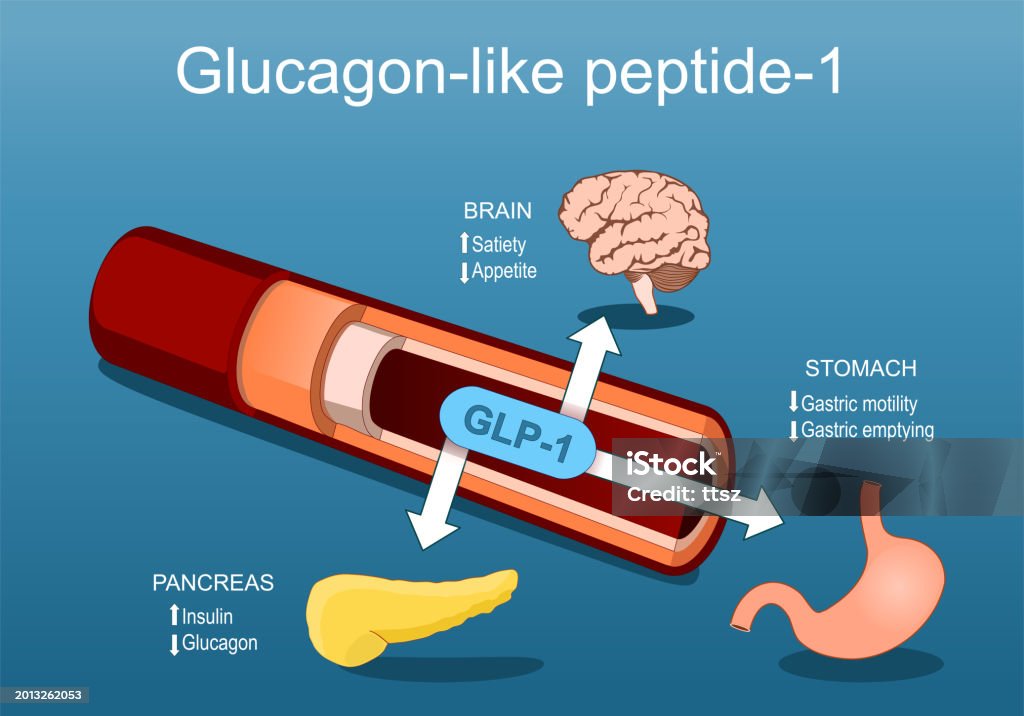
Glucagon-like peptide-1 (GLP-1): what is all the fuss about?
Glucagon-like peptide-1 (GLP-1) is a natural hormone released in the intestines to regulate blood sugar levels and metabolism.
GLP-1 receptor agonists are a class of medications that mimic the effects of GLP-1. Examples include semaglutide (brand names Ozempic and Wegovy), tirzepatide (brand name Mounjaro), and liraglutide (brand names Victoza and Saxenda).
Semaglutide is approved for treating type 2 diabetes, but it is increasingly prescribed off-label for weight loss. This is due to its ability to regulate blood sugar, reduce appetite, and slow digestion, resulting in weight loss as a common side effect. The popularity of these medications is not surprising due to their health benefits. According to research, reducing just 12% of body fat can increase a person’s lifespan by 6.8 years.
While the FDA does not explicitly approve these medications for weight loss, semaglutide has received approval for weight management under the brand name Wegovy.
GLP-1s are tools, not magic. Although highly effective for weight loss, a holistic approach is required. GLP-1s represent a single piece of the comprehensive management necessary to shed kilograms and prevent weight cycling. A specialized consultation is needed to discuss health concerns, gather information about medical history, and conduct an in-body composition assessment; you will receive a report. The consultation will explain treatment options and recommend a course of action, including medication and wellness— nutrition, dietary management, active lifestyle, and behavioral changes.
GLP-1 plays the following roles in the body:
1. Stimulating insulin secretion: GLP-1 helps the pancreas release insulin in response to food, which helps lower blood sugar levels.
2. Inhibiting glucagon release: GLP-1 prevents the release of glucagon (a hormone that raises blood sugar) from the pancreas, helping to reduce blood sugar levels.
3. Slowing gastric emptying: GLP-1 slows down how quickly food moves from the stomach to the intestines, which helps promote satiety (feeling full) and can aid in weight loss.
4. Appetite regulation: It also acts on the brain to reduce appetite, which can contribute to weight loss.
Medical Suites, Cambridge Crossing Shopping Centre
1 Stone Haven Street.
Paulshof
Sandton
South Africa
2191